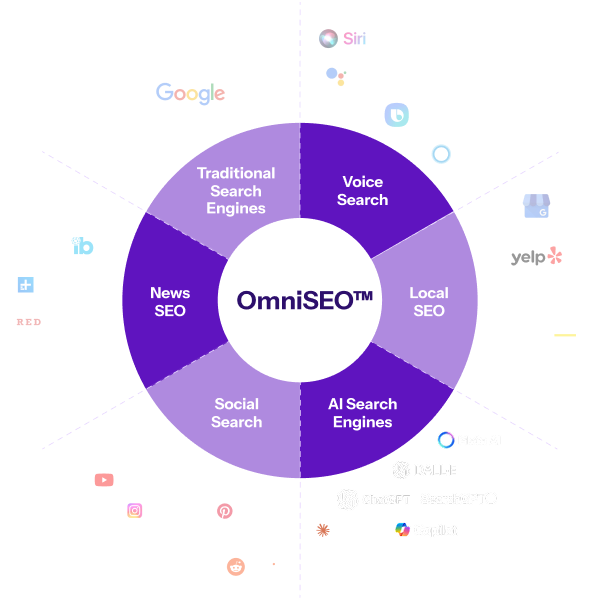In business, myths are misguided ideas that may cause you to miss out on opportunities or lose money by investing in the wrong ones.
The search engine optimization (SEO) industry is plagued with myths resulting from outdated information and other factors like Google algorithm updates. The regular Google algorithm updates render much of what was true in the past false today.
Additionally, SEO is a complex process with many ranking factors, and novices have a limited understanding of most of them and misinterpret many others. As a beginner, it’s easy to get stuck on the first information you receive on SEO and ignore any new truths that come with changing technology.
Here are some of the most common SEO myths to watch out for in 2025 and beyond:
SEO myth #1: SEO is a one-off process
Many business owners want to invest in SEO once, mostly during the development or website redesign stage, and then forget it and expect to continue seeing high rankings.
Suppose you did SEO once and left it there. In that case, you’ll likely experience either a gradual or drastic decline in your rankings as the algorithm evolves and competitors adopt better-ranking practices.
A successful SEO strategy is an ongoing process that involves constant updates and improvements to gradually boost your search rankings. Ongoing SEO caters to users’ evolving needs and updates to search engine algorithms.
Here are some of the factors that an ongoing SEO strategy focuses on to ensure a positive ROI:
- Improving page loading speeds
- Conducting regular audits for mobile friendliness, schema markups, and website navigation
- Monitoring competitor strengths and pivot to outperform them
- Updating content to provide users with valuable and accurate information
SEO myth #2: SEO drives immediate results
Rogue SEO companies like to overpromise and underdeliver. Driving immediate SEO results is an overpromise many business owners fall for.
In truth, it can take three to six months or up to a year before you start enjoying the benefits of your SEO investment. This timeline is because there are over 200 ranking factors, and some of the main ones rely on building your reputation, which takes time.
The exact duration it takes to start experiencing the results depends on:
- Competition: It’s more difficult to rank with big companies with an established web presence and domain authority. To increase your chances of ranking, you must have a solid keyword strategy that targets long-tail keywords with less competition and higher search volume.
- Website history: It’s easier to start ranking after a successful SEO campaign when you have an older website. This is because search engines need time to crawl and absorb the information on your website before indexing it.
- Backlinking profile: Backlinks come from other websites that endorse your business, thereby contributing to your authoritativeness and brand reputation. Gathering strong backlinks will take time, especially if your website is new.
There are no guarantees in SEO. You must start by working with reliable and trustworthy SEO companies who understand all the nuances and can help you reinvent the wheel whenever necessary to drive results.
Check out our domain age calculator
SEO myth #3: SEO always guarantees page-one rankings
When you think of SEO, you probably think of the first page rankings, but it’s not always the case. SEO aims to pull your website from oblivion and make it easier for clients to find. It’s a huge red flag if an SEO company guarantees you page-one rankings immediately.
Some SEO companies use black-hat SEO techniques like link farms, keyword stuffing, or hidden text to manipulate search engines and deliver high rankings. However, the catch is that when search engines discover these practices, you’ll be penalized, and ranking will be a far-fetched dream afterward.
Instead of working with a company that guarantees page-one rankings, work with one that provides you with realistic improvement estimates and clear SEO KPIs, like more organic search traffic, lower bounce rates, and higher conversion rates.
Always remember that SEO companies do not control rankings — search engine algorithms solely do that.
SEO myth #4: All your SEO efforts should focus on Google only
For a long time, SEO was thought to be a technique that improved visibility on Google — the most popular search engine with the largest market share — only.

SEO is now an omnichannel effort that involves optimizing your content and messaging across all platforms you appear on to deliver a seamless customer experience. So, if you’ve optimized your website for SEO, you now have to optimize it for all the other platforms you want to rank on, such as YouTube, TikTok, LinkedIn, and ChatGPT.
Doing this yourself may prove hectic because you need to understand all the platforms. However, expert SEO agencies have the tools, techniques, and expertise to handle it for you and help you adapt to the changing environment efficiently and affordably.
SEO myth #5: You don’t need to focus on local SEO
Local SEO is the process of optimizing your website to appear in local searches, such as “near me” searches, which have grown exponentially in the last few years. You can’t afford to ignore optimizing your business for local search even without a brick-and-mortar store because over 1.5 billion searches monthly contain “near me” queries.
Local SEO ensures your business appears to customers in your vicinity, which increases website traffic and conversions.
There are various ways you can optimize for local SEO, including:
- Optimizing your Google My Business listing
- Obtaining local citations on other local websites
- Ensuring your business appears on Google Maps
- Integrating local keywords and lingo in content and meta tags
- Partnering with local organizations in local link-building
- Joining online business directories, like Trip Advisor and Yelp
- Generating content targeted at local audiences
SEO myth #6: Meta tags are not an SEO ranking factor
Meta tags, which include title tags and meta descriptions, are among Google’s confirmed ranking factors. Contrary to popular belief, they impact rankings.
SEO title tags are critical because they tell users and search engines what a page is about. With optimized title tags, you can increase traffic and drive more results. However, your title tag must accurately describe a page’s content to encourage more clicks and conversions.
Meta descriptions impact rankings because search engines use them as page snippets. They appear right below the title tag and give users and search engines a feel of what to expect on a page. Integrating keywords into your meta descriptions can help you rank better for those specific terms.
SEO myth #7: You can get away without keyword research
Keyword research is a critical part of SEO that involves finding, analyzing, and selecting search terms that generate results for search engines. It’s easy to assume that keyword research simply involves using a term you think clients in your industry use often during searches and using it in your web copy to guarantee rankings.
However, it’s a more complex process with a more significant impact on your rankings than many people know. Effective keyword research involves:
- Brainstorming broad keywords that relate to your industry, products, and services
- Investigating competitor keyword targeting to find the most relevant ones
- Using a keyword research tool to expand your search based on search trends and data
- Integrating keywords naturally throughout your site, including on title tags and meta descriptions
- Performing keyword research often to identify changing search trends and volumes
SEO myth #8: The more keywords on a page, the better the rankings
Having more keywords than necessary on a page to attract search engines was once a trend. The practice, popularly referred to as keyword stuffing, is now outdated and requires you to adjust your perspective on keyword placement.
It’s now a more strategic placement that must align with the need to provide clients with relevant results and a seamless experience. Keyword stuffing is counterproductive to higher SEO rankings because it renders your content unreadable and unhelpful.
Because keyword density still counts toward your rankings, we recommend a 1-2% keyword density to ensure natural placement and content quality. So, no, more keywords don’t guarantee better search rankings!
Get SEO right by partnering with industry-leading experts
Another myth you may have encountered is that all SEO companies are identical. Nope! That could not be further from the truth!
Some SEO companies without expertise or experience will over-promise and underdeliver, while industry-leading companies like WebFX — SEO.com’s parent company — will have results to back their promises.
Working with us means you’ll leverage 25+ in digital marketing and SEO consulting services. Join over for whom we’ve been driving results, which report a rate and 91%.
If you’re ready to drown out the noise and watch your rankings improve steadily, request a custom proposal for free. Alternatively, contact us online today to learn more about how we can help you improve your SEO performance.
Source link


